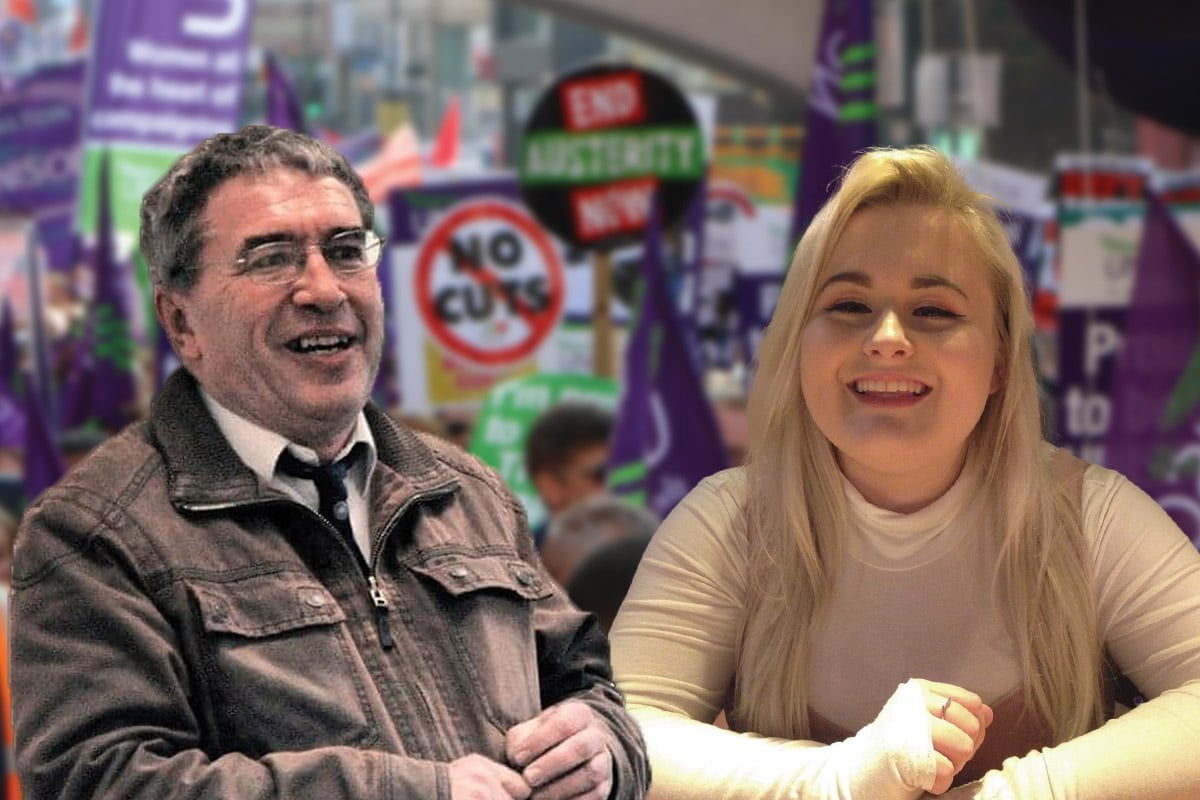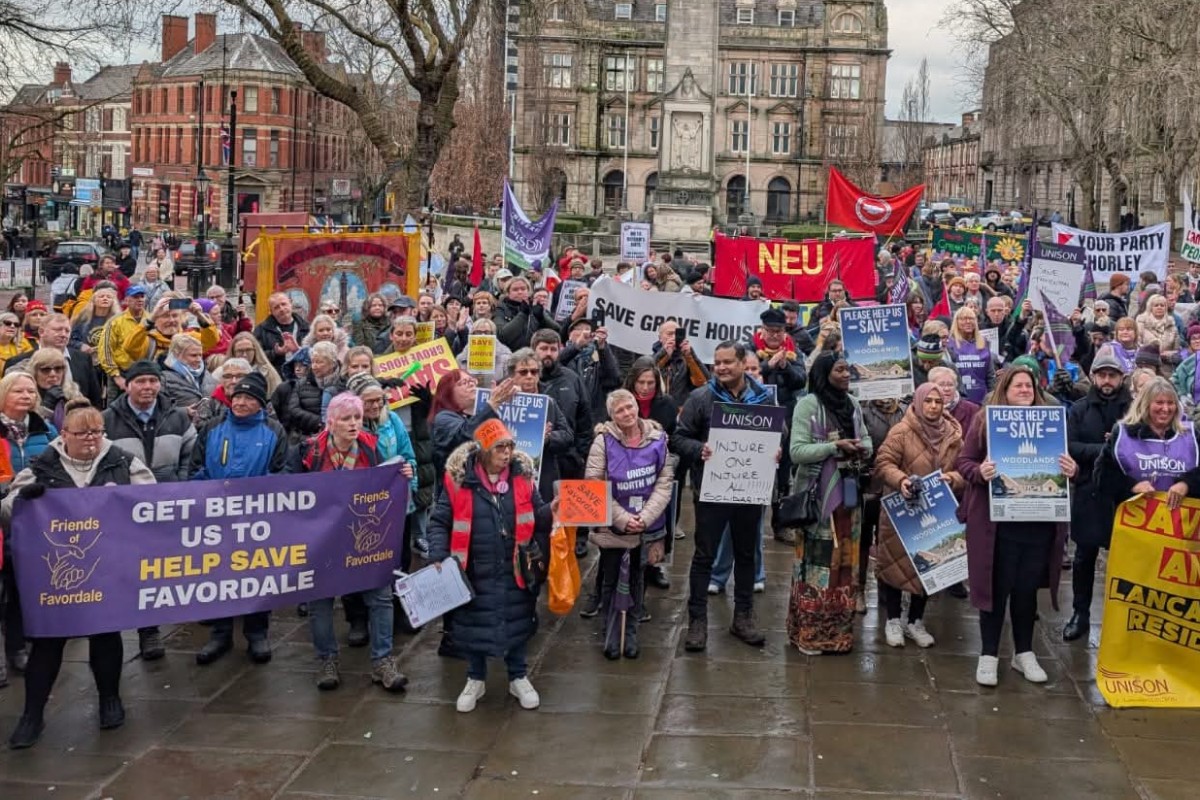Recent elections for the Unison NEC delivered a clear victory for the left. This has the potential to transform the whole labour movement in Britain. Socialist Appeal spoke with two newly-elected NEC members about the challenges ahead.
Last Friday, the national executive committee (NEC) of Unison met for the first time since being elected earlier this month. In these recent NEC elections, the left slate won a clear majority. And at last week’s NEC meeting, the left also took all three leading positions in the union’s presidential team.
This represents an earthquake for the British labour movement. Unison is the biggest trade union in the country, with 1.4 million members across the public sector. And this is the first time in the union’s history that its NEC has been won by the left.
Paul Holmes was one of the NEC candidates who stood under the slogan of #TimeforRealChange, having narrowly missed out in the Unison general secretary elections earlier this year.
Paul agreed to speak to us in a personal capacity about the left’s NEC victory, its implications, and his thoughts on the issues facing the union.
Socialist Appeal: Thanks for agreeing to this interview. Two weeks ago, Unison’s NEC was won by the left for the first time since it was formed. What does this victory mean for the union?
Paul Holmes: I think it means that the slogan we stood under – #TimeforRealChange – is going to be implemented. The members don’t want things run the way they always have been; they want change, which is why we stood under that slogan.
Congratulations to the left candidates in the #Unison NEC elections, who have won a strong majority. This is an incredible result, which will begin the transformation of Unison – and of the entire #labour movement in Britain. #TimeForRealChange! pic.twitter.com/iouWZZ1SJE
— Socialist Appeal (@socialist_app) June 11, 2021
SA: The left now has a solid mandate to implement the kind of change you’re talking about. What do you see, personally, as the priorities for the new NEC?
PH: There are three main priorities. The first one: We’re determined that the biggest union in Britain starts to fight its weight. We want a high-profile union where our members are involved in developing its policies, and can also see them being implemented.
Two: We will reach out to other trade unions as brothers and sisters, and not as competitors. It is only by agreed joint action with fellow trade unions that we can advance the cause of all working people in the country.
Three: The aim of this union is not to have cosy deals behind closed doors. Its number one priority will be the economic wellbeing of our members.
SA: And what are the big issues immediately coming up that the union will face?
PH: There’s no doubt that the employers are looking towards the end of COVID, and what further attacks they can make at that point. Recent research shows that 9% of workers, and 18% of workers under 26, have already had their pay and conditions cut over the last 12 months. This is before the real attacks begin!
The main tool of the bosses will be ‘fire-and-rehire’ tactics. We’ve already seen disputes at the Manchester buses, JDE in Banbury, Heathrow Airport, Tower Hamlets council and numerous other instances because of these tactics.
The employers will want to extend those attacks. It is Unison’s role to coordinate our members’ defence alongside other trade unions. We will not flinch from uniting our members against these attacks.
SA: Unison is also one of the biggest unions affiliated to the Labour Party. What do you make of the recent by-election results?
PH: Having looked at the result of the Chesham and Amersham by-election, Labour’s vote fell from 7000+ to 622 (and they lost their deposit). My understanding is that Labour has more than 622 members in that constituency. They couldn’t even get every party member to vote for them!
I see the result as an anti-Tory government vote – but also a vote of no confidence in Labour’s current direction. The debate needs to be about what Labour are going to do for ordinary people in this crisis, not about personalities or careers.
It is only through open debate and accountability that confidence in Labour will return. The 2017 manifesto was incredibly popular among voters. We now need to have a serious debate about what the Labour Party can do to improve the lives of ordinary working people.
The rules of that debate shouldn’t be set by the Daily Mail or the Daily Telegraph, but by what ordinary people at the sharp end want.
The debate should be about getting rid of foodbanks, not building royal yachts!
Interview with Lilly Boulby: Unison national young members’ officer
Our Unison correspondent and Lilly Boulby (personal capacity)
The crisis facing the working class in Britain has had a particularly sharp effect on young people. As the last gains of the post-war period are snatched back, one after another, and precariousness becomes the norm, young workers face an onslaught from the employers.
In this context, the election of Lilly Boulby and Keira Hilder to the young members’ seats of the Unison NEC is very significant. Standing under the slogan #TimeforRealChange, along with other lefts, these two were able to beat the right wing’s chosen candidates.
Lilly spoke to Socialist Appeal recently in a personal capacity about what this means for the union.
“People are ready for change,” Lilly began telling us. “The left won a majority in all different areas and service groups, which shows that that change is exactly what people want across the union.
“People want Unison to take a different course in what it’s doing, not only on the local but also on a national level. They want a union that’s ready to fight the battles that we know are coming up.”
Noting that the youth have suffered particularly heavily under both the last decade of austerity, and over the course of the COVID pandemic, Lilly laid out some of the priorities she sees for young people:
“I feel personally that young people are being attacked on all fronts: on housing, jobs, anything you can think of really. As soon as they come out of education, depending on what level they’ve left at, they’ll be up to their eyeballs in debt.
“Then they face insecure contracts in the workplace, and in the public sector you have councils that are strapped for cash and a chronically underfunded NHS which limit the ability of people entering those workforces to gain good pay and decent experience in the kinds of jobs they want to do.”
As the recent situation in Tower Hamlets council has shown, the issue of underfunding and austerity has led to another threat that unions like Unison are facing: the disgraceful spectacle of ‘fire-and-rehire’ tactics being used to hammer workers.
“This is going to be one of the biggest issues facing the whole trade union movement,” Lilly explained to us. “It’s happening in every sector, public or private, with everybody from local councils to cocktail bars using it.
“It’s clear that this tactic is how the bosses plan to attack terms and conditions across the board. And there’s no doubt in my mind that this will hammer young workers in particular.
“In my view, we must fight this practice tooth and nail; and we must reach across to our sister unions to present a unified front against it. Other unions are already engaging in this struggle and showing that this is a fight that can be won. And we should be prepared to lend our union’s full weight to the battle to end fire and rehire once and for all.”
In terms of the role Lilly herself could play, and what she would personally like to see as the union’s response to this situation, she responded by strongly outlining her thoughts:
“The first thing I think we should do is launch a national campaign to get young workers into the union, which also involves and is guided by our current young members. To organise these workers to fight against attacks on them, we need to show them that the union is prepared to back them to the hilt, and won’t back down from taking on the employers.”
That Unison has elected a left NEC at a time when most members are being squeezed is no coincidence.
The public sector pay freeze, which will see Unison ballot its members in higher education this week, is a deliberate slap in the face to those workers who have kept the country running during the pandemic. It demonstrates the real priority of this government of the rich – the maintenance of capitalism and its profits.
The Tories are already outlining how they intend to make our class pay for the pandemic. In response, there is a clear need for fighting leadership and firm socialist policies in the labour movement.
The election of a left Unison NEC, with candidates such as Lilly who stood under the #TimeforRealChange banner, is a step towards this goal.






